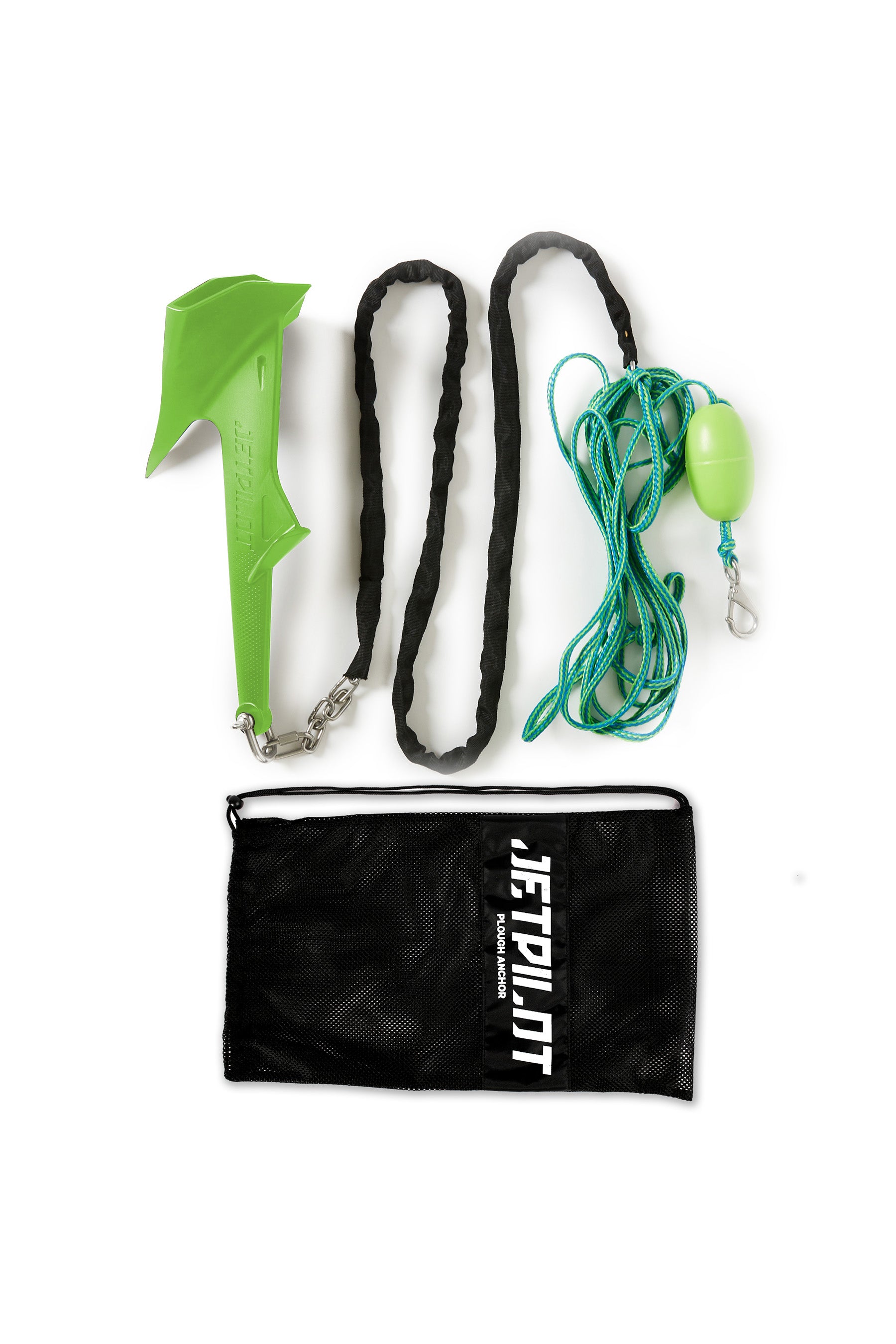Filters
You Have Questions? We Have Answers!
How many fenders does Jetpilot recommend for a jet ski?
We recommend running two PWC fenders per ski for proper hull protection at pontoons, docks, and when tying up next to other skis. It gives you better coverage and reduces the chance of rub-rail and side-panel scuffs.
How do you use a PWC sand anchor properly?
With our sand anchor, you fill the bag with sand or rocks, clip it on, and let it set. It’s designed as a lightweight, packable option for quick stops and keeping your ski where you left it.
Is beaching a jet ski on sand a good idea?
We don’t recommend running the ski up onto the sand. It can mark up the underside of the hull and risk damage in rocky or tidal areas. Anchoring just off the beach is often the safer, cleaner option.
What’s the best anchor type for sandy or muddy bottoms?
If you want serious holding in sand and mud, fluke and plough styles are the go-to. Flukes have strong holding in soft bottoms, and plough anchors are a reliable all-rounder that’s designed to bite in.
How much anchor rope should you use for a jet ski?
We recommend using a 5:1 scope ratio as a starting point. If it’s rough or windy, increase it (for example, 8:1). More rope helps the anchor set properly and hold better.
Where do you attach the anchor line on a jet ski?
We always anchor from the front tow hook (bow hook). It helps the ski sit correctly and reduces the risk of the ski swinging unpredictably.
What’s the difference between a lightweight fluke kit and a heavier-duty kit?
Heavier-duty kits typically include more chain and longer line, which improves holding in deeper or rougher conditions. Lightweight setups are better for calmer, shallower use where packability matters.
How do Jetpilot fenders protect the hull from damage?
Fenders are your buffer between your ski and hard surfaces. They take the hit first, helping prevent dock rash, scuffs, and scratches on the hull and rub rail while you’re tied up or rafting with mates.
Your ski cops enough punishment on the water. Don’t let the dock, the sandbar, or a dodgy tie-off be the thing that marks up your pride and joy. Jetpilot Jet Ski Fenders & Anchors are built for real PWC use in Australia, so you can pull up, lock it in, and relax without stressing about drift, bumps, or hull damage.
If you’ve been comparing the top results for jet ski fenders and anchors, you’ll see the same themes repeated: protect the hull at the ramp and pontoon, choose an anchor style that matches the bottom (sand, mud, reef), and pack a setup that’s compact, fast to deploy, and easy to stow on a PWC. We agree. We also know beaching a ski can damage the hull over time and can be risky in tidal areas, so anchoring right is often the smarter move.
Hull protection for jet skis starts with fenders.
A proper fender setup is cheap insurance. Our Jetpilot PWC Fender is designed to take the hit so your ski doesn’t. It uses a hinged design that folds up for easy storage, a moulded hook that secures under the rub rail, and a rubber block to help prevent scratches. We recommend two fenders per PWC for the best coverage when you’re tying up next to pontoons, other skis, or the boat.
PWC sand anchors for quick beach stops.
For sandbars, shallow bays, and quick swims, a PWC Sand Anchor is one of the easiest options. Ours is a lightweight bag-style solution that packs down small and sets up fast. Fill it with sand or rocks, clip on, and you’ve got a solid hold without hauling bulky metal gear. It includes a 6m poly rope with float and attachment, built from heavy-duty 600D nylon.
Best use case: calm to moderate conditions where convenience matters most.
Folding jet ski anchors when you want compact and versatile.
If you want something compact with fewer sharp edges around your ski, folding jet ski anchors are a smart option. They’re designed to pack away neatly, and they can work across mixed bottoms, including areas that are a bit rockier, while still handling softer ground in calm water.
Lightweight fluke anchors for stronger holding in soft bottoms.
When you need staying power in sand and mud, lightweight fluke anchors are a proven choice. They’re designed to dig in and hold, making them a solid pick for fishing sessions or longer stops. In our guide, we call flukes out as an effective option when holding power matters, especially in muddy or sandy bottoms.
Plough anchors for the all-rounder setup.
If you want a dependable “set it and forget it” style, a plough anchor is the all-rounder. Plough designs are made to bite into sandy and muddy bottoms, and our complete systems include practical add-ons like chain, rope, a hi-vis float, and a stow bag to keep everything tidy in your storage compartment.
Rope length matters more than most people think.
Anchoring isn’t just dropping metal and hoping. A solid rule is the 5:1 scope ratio (rope length to water depth). If it’s rough or windy, increase scope for a better set. Always anchor from the bow hook so the ski sits correctly.
If you want your ski to stay cleaner for longer, this is the kit that earns its place every ride: fenders for contact protection, the right anchor for your bottom type, and a setup that’s quick to deploy when the crew’s ready to jump off.







